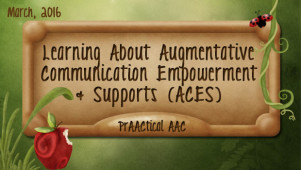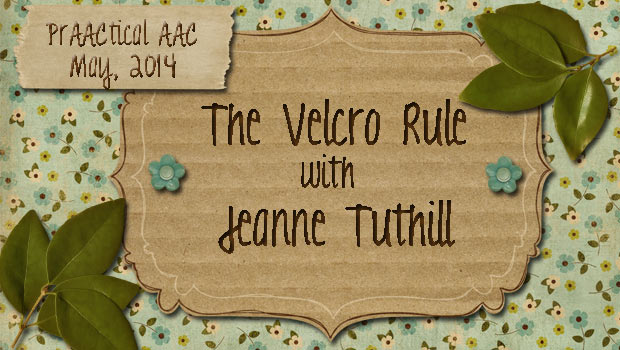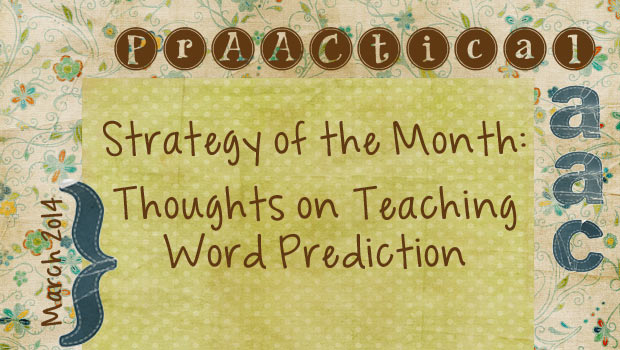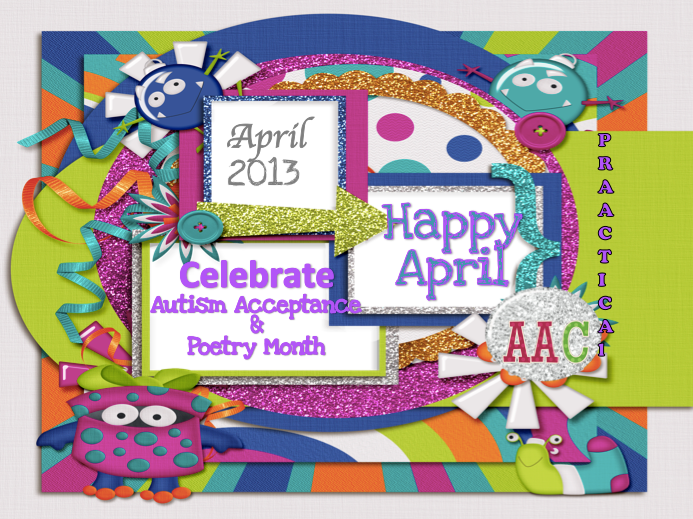March 10, 2016
by Carole Zangari -

Is it summer yet? Not where we live, but that doesn’t stop us from making plans. In today’s post, we hear about the Summer 2016 Augmentative Communication Empowerment and Supports (ACES) Program at Temple University which will run from July 18-29, 2016. SLP Kathryn Helland, AAC Services Coordinator at the Institute on Disabilities at Temple University, shares information on this innovative program for young adults who use AAC. Kathryn provides training, AAC evaluations, device demonstrations, and AT consultations to consumers of Pennsylvania’s Initiative on Assistive Technology (PIAT). True to its name, this program has a rich tradition of changing lives and empowering adults who use AAC. ——————————————————– ACES – What’s it all about? It is a steamy hot day at the end of July. Temple University’s already diverse campus is further enriched by the presence of students in wheelchairs. They sit, chatting under the ginkgo biloba trees. They are all young adults, with... [Read More...]
October 29, 2014
by Carole Zangari -

Today, we’re back to Poland to watch a terrific video inspired by Pat Mervine’s wonderful book, How Katie Got a Voice. It’s a perfect blend of AAC awareness-building, story-telling, and prAACtical inspiration. Enjoy this wonderful story!
May 23, 2014
by Carole Zangari -

We’re happy to have SLP Jeanne Tuthill back with a brief post on one of our all-time favorite products. Since we have a few folks who are new to AAC, we thought it would be great to review this simple guideline. We’ve known to break a few rules but this one is sacrosanct. :::::::::::::::::::::::::::::::::::::::::::::::::::::::::: Recently, on PrAACtical AAC, there was a blog post that poked a little fun at fellow practitioners with a tongue-firmly-in-cheek list of ways to determine if you might be an AAC therapist (You Might be an AAC Therapist If…). I am guilty of far too many items on that list (Hello, my name is Jeanne and I am an AAC therapist…) and I even added a few of my own idiosyncrasies in the comments section – just for good measure! One of the things I added to the list was: “You get irrationally upset when someone doesn’t... [Read More...]
March 31, 2014
by Carole Zangari -

As we wrap up a month of AAC and literacy, let’s look at a strategy that spans communication, reading, and writing. Word prediction, as you know, is a strategy in which the learner begins spelling a word and the AAC device provides a word bank of possible options using a prediction algorithm. There are lots of kinds and levels of prediction, and the technology keeps getting better and better. Word prediction is built into most high tech SGDs, many text-to-speech apps, and some writing programs. In this post we consider some of the issues around using and teaching word prediction. Time and Effort Word prediction (WP) saves keystrokes, which is important for our prAACtical friends who have limited energy, poor endurance, and issues with fatigue. Does it save time? Not always, and there were some important studies that revealed this in the mid-1990’s. Of course, technology has improved a lot... [Read More...]
April 1, 2013
by Robin Parker -

There are a lot of celebrations this month. It is officially Autism Awareness Month. A new name for this that has popped up & taken hold is Autism Acceptance Month. Awareness and/or Acceptance seems to mean different things to different people but hopefully the intent is similar. We hope that this month is filled with great ideas to support ALL people with autism and their families. We hope that educators, clinicians, and whole communities are inclusive, that they presume competence, and that they support communication and language using best prAACtice information and research. We do know that there is more to hope for than just this, like better employment outcomes, more appropriate accommodations, and more individualized support but if focus stays on the former, it seems then that the latter would improve. Plus we have more control (if there is such a thing) on facilitating inclusivity, presuming competence, and of course... [Read More...]




